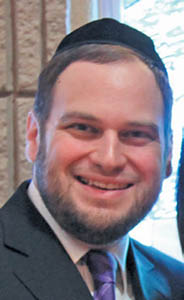
On the Seder night, one of the great tzadikim of Yerushalayim physically brings to life the words of the Haggadah. In the very beginning of the Haggadah we invite all others to join with us at our Seder. This tzadik stands outside of his home on the road and asks passersby if they have a place for the Seder. Legend has it that the yeshivah the tzadik is associated with has a raffle for two students to attend the rav’s seder. One year, one of the students was disappointed that he didn’t win the raffle and contemplated a way to gain entry to the tzadik’s home for the Seder. The student decided to pass by the rav’s home when he was standing outside before the Seder seeking guests to come in. The student gained entry to the tzadik’s Seder without winning the raffle. The Mishnah in Masechet Pesachim tells us that even an ani sheb’Yisrael (poor Jew) must feel like a free person on the Seder night. We collectively as a people cannot sit and enjoy freedom when knowing that there are others who still feel enslaved. The Mishnah continues that it is the responsibility of the community to provide the poor person with four cups of wine if he cannot provide for himself, so that he too can feel a sense of freedom.
While an ani is generally defined as a poor person by the Mishnah, it is possible to have a financially stable or wealthy person who may also be defined as an ani. Some of us may actually fall into this category. An ani is a person who has very little hope of changing his fate. Such people feel imprisoned to the chronic state of their being. While this may be true on a financial level for the poor, it can also be valid on an emotional scale. The Seder is one of the yearly events that brings many memories to the surface. It is a time when we may find ourselves reflecting on the past. We remember wonderful moments with family from our earlier years, but may also conjure up other memories as well. Some of us manage to get through life on a daily basis, but carry a heavy weight with us that paralyzes our ability to feel a sense of true freedom. We are enslaved to the mistakes of the past and have a hard time finding the compassion needed to forgive ourselves for decisions that we made and may regret. On this night of freedom, let us contemplate the meaning of freedom on our own individual level and begin to honestly address the emotional freedom that is needed for our growth and spiritual sustainability. May we all feel like true “bnei chorin” this Pesach.
By Rabbi Eliezer Zwickler
Rabbi Eliezer Zwickler is rabbi of Congregation AABJ&D in West Orange, New Jersey, and is a licensed clinical social worker in private practice. Rabbi Zwickler can be reached at ezwickler@gmail.com.










